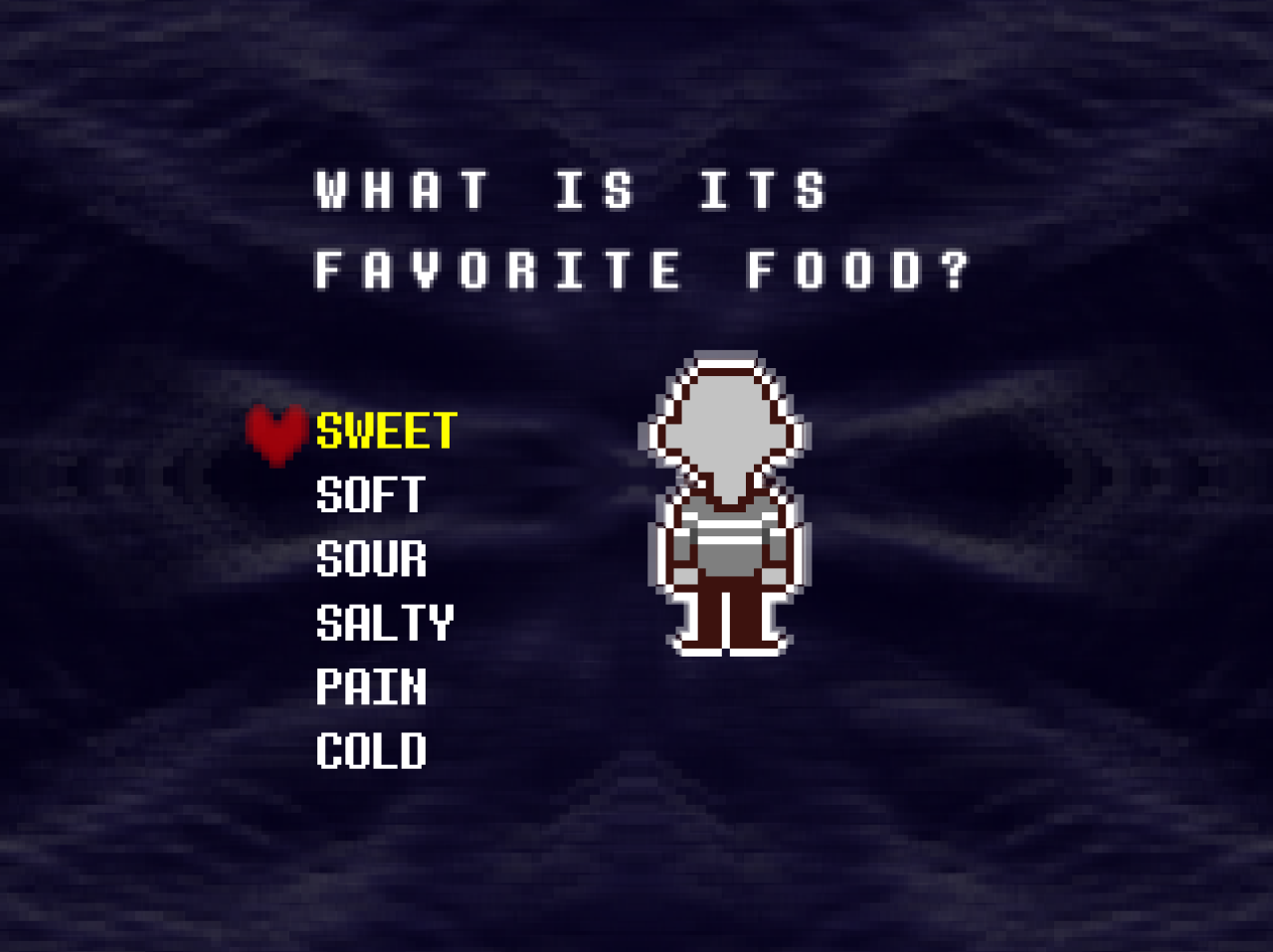Deltarune & Control
Hello! I was at a little of a loss for what to write a blog post about this week, but I ended up having a conversation with a friend the other day about Deltarune and it got me thinking about today's topic of discussion, the themes of control and freedom in Deltarune. This won't be some crackpot theory like my previous Deltarune posts, but instead a textual analysis of the game's metanarrative and commentary about determinism and independence, so expect a lot more English major-y stuff in this post.
Since I know most people reading this aren't familiar with Deltarune, here's a quick refresher: You play as Kris, a human who befriends the school bully, Susie, and goes on adventures in pocket dimension "dark worlds" in order to seal fountains of darkness to prevent the pocket dimensions from spreading. While this covers the general plot of Deltarune (at least according to the first two installments of the series), there lies deeper storylines and commentary on a variety of subjects, not least of which being related to how you, the player, control Kris as a videogame character.
To me, Deltarune is an interesting game because it is one of few games that makes an intentional distinction between the player character and the player themselves. While most games either have an established character that you're meant to embody or a blank slate character that you're meant to project onto, Deltarune instead places you in the position of playing as a character that you can project onto, that you can control, but they are not a blank slate character. In the story of the game, you as the player exist as a separate controlling entity to Kris, who is an individual that lacks their own agency, and because of this is at the mercy of your decisions.
Deltarune as a piece of media is heavily associated with the idea of determinism because of its motifs of freedom and control, but I posit that its lesser known association with nihilism is crucial in understanding and interpreting the game's definition of why determinism is so important. While attitudes towards determinism and nihilism can vary (as evident by characters like Jevil and Spamton), establishing an inherently pessimistic reaction to the idea of the future already being set in stone does set the tone for where the game wants to take the discussion around Kris' lack of control. It is heavily implied through some in-game interactions and dialogue that Kris isn't happy with your controlling of them, sometimes resulting in malicious compliance of decisions you make, where they will still technically do what you wanted them to, but executing the action in such a way where their own personality is visible. Through these sorts of interactions, the game solidifies the divide between player and player character, while hinting at potential conflict between the two.
Going back to the phrases I mentioned earlier, I believe that the first phrase, "No one can choose who they are in this world," is meant to be directed at the player. This seems a little obvious, given that at this point in the game there isn't any other known character that the voice could be referring to, and it is literally in response to deleting the character that you wanted to play as in this world. However, I believe that the repeated usage of "Your choices don't matter" throughout the game isn't directed at the player, but instead Kris.
The purpose of repeating this phrase to Kris specifically can be debated. According to the game's description on Steam, it is marketed as having "only one ending?" which would seem like its more directed towards the player than Kris. Despite this, I think that the intention of the phrase is meant for Kris, and it happens to be more broadly applicable for both the player and Kris. But why remind Kris of their inability to make decisions? Again, there isn't a whole lot that we can glean of the game's overall story and character arcs at this point, since we only have two chapters out of the total seven chapters that are planned to be released. That being said, I think that the distinction and even separation of Kris and the player's control will play a big part in the overarching narrative for Deltarune.
While speculation for what the reminding of Kris' inability to exert their own will can mean in the context of the game's future is likely the center of discussion surrounding this discourse in the Deltarune community, I interpret Kris' predicament as a reminder to us as real people to not take our freedom and independence for granted. While we might not be controlled against our will by a higher being (at least, not knowingly), we are often controlled by society and its expectations of us, leading to self-limitation and living in bad faith (a existentialist belief where people adopt false beliefs and act inauthentically in order to conform to society) and because of this, do not live to the fullest extent that our freedom as human beings allows us to.
I'll cap this blog post off before it gets too philosophical and existentialist, but whatever Kris' lack of control may mean within the game's narrative, I think that Deltarune as a piece of art is meant to awaken our own desire for freedom and authenticity as people, and to not submit to the unwilling control of higher forces limiting our lives. That's definitely some preachy bullshit I'm saying now, but I had been thinking for a while about Deltarune lately and I think I'm probably going to post more about it in the coming weeks, since I honestly think its a fascinating bit of media and I look forward to seeing what comes out of this series in the future!




Comments
Post a Comment